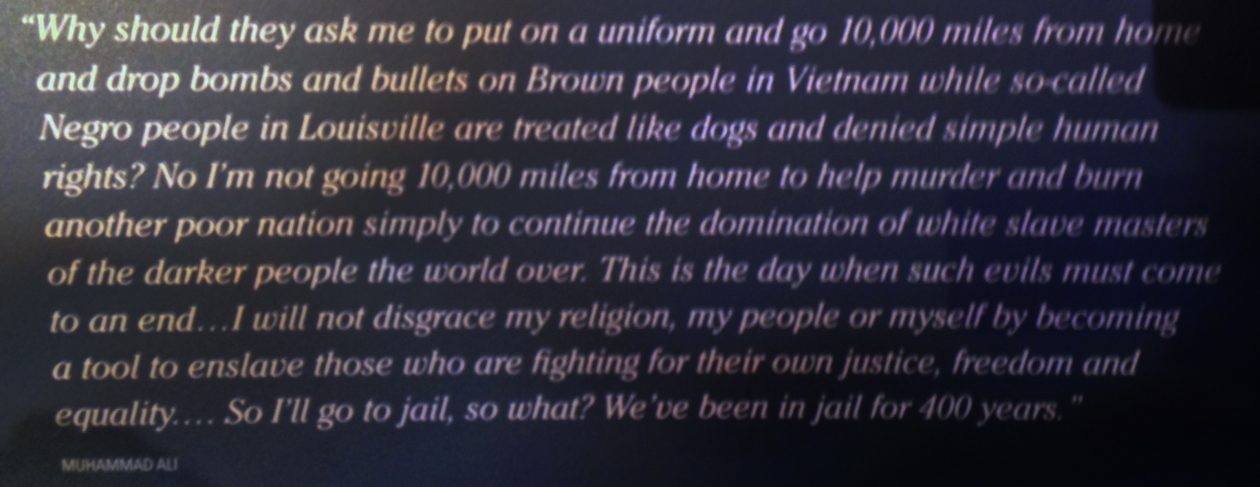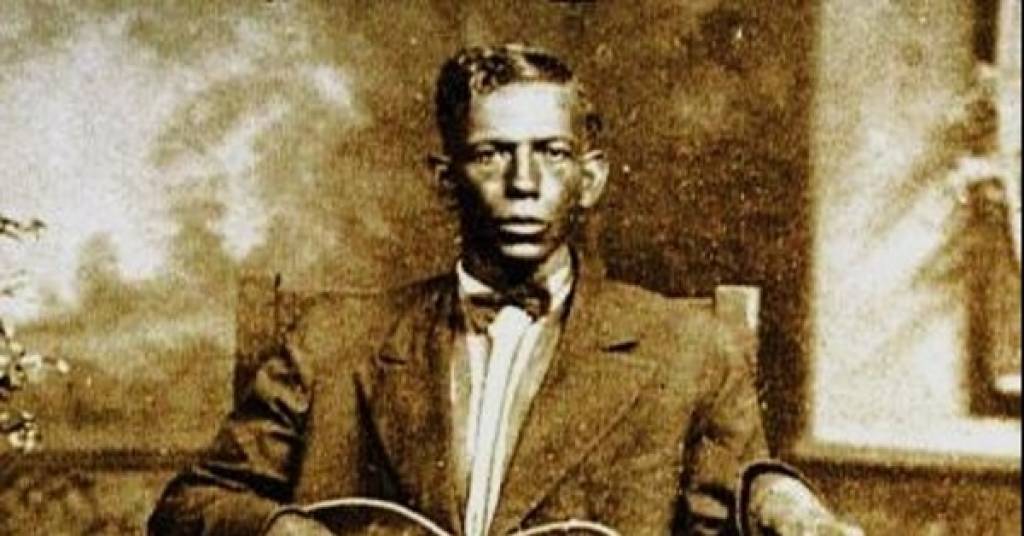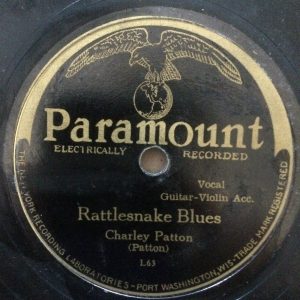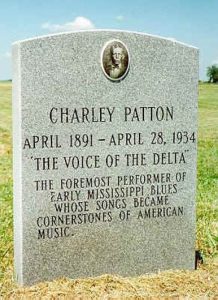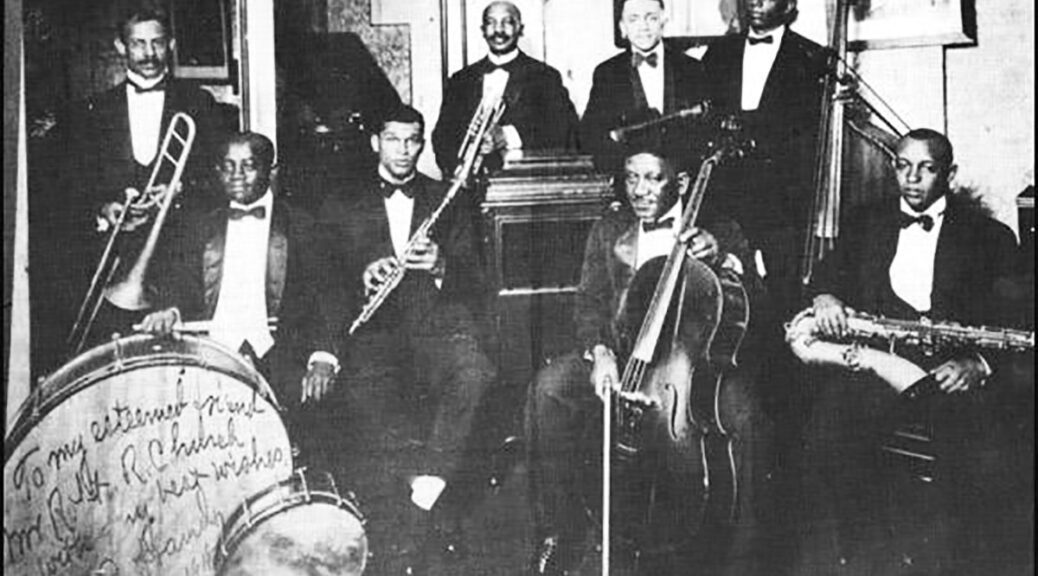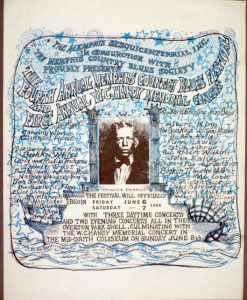Bluesman Charlie Patton
Rattlesnake Blues by Charlie Patton
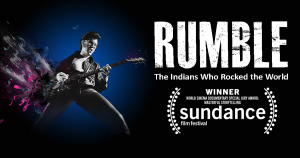 It is a too often an embarrassing occurrence with me that I “discover” something important that has sat in front of me for decades.
It is a too often an embarrassing occurrence with me that I “discover” something important that has sat in front of me for decades.
While listening to the radio just a few years ago, the DJ referred to the movie “Rumble: The Indians Who Rocked the World.”
Astounding.
Bluesman Charlie Patton
Blurred origins
Trying to pin down who the originator of this or that musical genre often leads to a lively discussion. Who gets credit for American blues? And what were their influences?
Great music is filled with emotion and we humans–filled with emotion–have always had music. How it sounds is influenced by the place we live, the time we are a part of, the instruments around us, and other factors.
We humans also like to keep things simple and as a result we too often pigeon-hole a musician because their fame stemmed from just one aspect of their art.
Charlie (or Charley) Patton was much more than just a blues singer, or more specifically, a Delta Blues singer.
Bluesman Charlie Patton
Delta Blues
In the movie, John Troutman, American Music Historian, says, “…blues buffs, blues scholars, although they can’t really agree on anything, if they were forced into a room when they had to identify…the most important singularly important blues guitarist, singer, songwriter, the whole package, the greatest one there ever was in the early 20th century…they’d probably say Charlie Patton.”
At his site, Elijah Wald explains, “Even though his recording career was sparked by the blues craze, only about half of his roughly fifty records can reasonably be considered part of that then-modern genre. The others are a mix of gospel and religious music, ragtime comedy like “Shake It and Break It,” ballads like “Frankie and Albert,” older slide guitar standards like “Bo Weavil” and “Spoonful,” and a couple of unclassifiable pieces that seem to be his reimaginings of Tin Pan Alley pop numbers, “Some of These Days” and “Running Wild.”
Bluesman Charlie Patton
Patton’s background
Charlie Patton was born in April 1890 or maybe 1891 or maybe 1895. His parents were Bill and Annie Patton.
While certainly an African-American, it is likely that he had other ancestry, including American Indian. Howlin’ Wolf was a student of Patton’s. Wolf said, “Charlie Patton was an Indian. And he was the baddest motherfucker in the world.
Most agree today, Patton not only had American Indian ancestry, but that Patton’s music reflects that cultural influence.
Keep in mind, that Native Americans sometimes chose to pass as African Americans because they thought that the dominant white American society treated Blacks better than Natives!
Bluesman Charlie Patton
Dockery Plantation
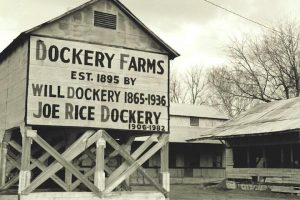 In 1897, Patton’s family moved to the Dockery Plantation near Ruleville, Mississippi. Will Dockery had started the farm in 1895. Because of its location, there was a lack of local labor available and Dockery encouraged all to work and paid a bit better and more reliably.
In 1897, Patton’s family moved to the Dockery Plantation near Ruleville, Mississippi. Will Dockery had started the farm in 1895. Because of its location, there was a lack of local labor available and Dockery encouraged all to work and paid a bit better and more reliably.
As a result, a mixture of backgrounds worked his sawmill and fields. Patton was in the middle of this and his musical abilities were steeped in these backgrounds. In his Deep Blues: A Musical Pilgrimage to the Crossroads, the late Robert Palmer described Patton as a “jack-of all-trades bluesman”, who played “deep blues, white hillbilly songs, nineteenth-century ballads, and other varieties of black and white country dance music with equal facility.”
Bluesman Charlie Patton
Legacy
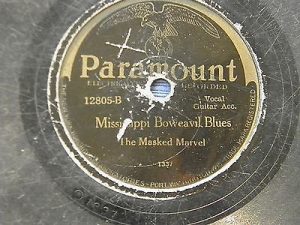 Charlie Patton was only 43 when he died on April 28, 1934, but his influence on the Delta Blues which gave birth to Chicago electric blues and so on and so forth until we white Baby Boomers thought the Rolling Stones, the Animals, Cream, John Mayall, and others were playing something original but were simply re-interpreting our own music which was the descendant of American Indian, African, and other musics.
Charlie Patton was only 43 when he died on April 28, 1934, but his influence on the Delta Blues which gave birth to Chicago electric blues and so on and so forth until we white Baby Boomers thought the Rolling Stones, the Animals, Cream, John Mayall, and others were playing something original but were simply re-interpreting our own music which was the descendant of American Indian, African, and other musics.
Bluesman Charlie Patton
John Fahey
Master guitarist and blues fan, John Fahey, wrote a great book about Patton simply, Charley Patton. Here is a link for the entire book.
